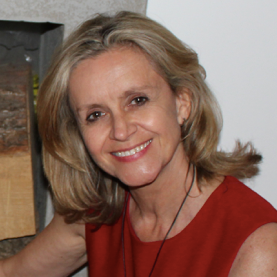
While President Volodymyr Zelensky is making significant strides in securing commitments for a long-term security deal with the U.S. at the G7 summit in Italy and is poised to benefit from a $50 billion loan to Ukraine using frozen Russian assets, his peace summit in Switzerland this weekend faces challenges due to competing peace proposals. In an interview, Mariia Zolkina, a Ukrainian political analyst from the Ilko Kucheriv Democratic Initiatives Foundation and the London School of Economics, revealed that leaked documents indicate alternative peace plans from other countries will be promoted by some of the nations attending the peace summit that will be diluting Ukraine’s peace formula. She said China is trying to prevent some countries from attending the Swiss summit to keep the Chinese peace proposal viable.
What Zelensky is hoping to achieve at the G7 summit.
Ukraine basically wants another step forward in terms of military and financial support. The aid significantly slowed down after a seven-month delay related to U.S. aid. As of now, Ukraine wants to ensure that the next portion of aid, which is critically needed on the eve of another possible Russian attempt to break through the Ukrainian frontline, will be secured. Essentially, the G7’s decision, not just on sanctions but on another 50 billion euros that could belong to Ukraine, is of critical importance for the Ukrainian government.
Political obstacles to freezing Russian assets
We are moving into deeper discussions about how and when it’s possible to expropriate Russian frozen assets and give them to Ukraine to rebuild the country and reimburse the cost of the war and damages Russia has caused. There are numerous political obstacles, not just legal ones, but mainly political. For the G7, the U.S., France, and every Western partner of Ukraine, their tactics towards Russia involve broader considerations. They are concerned about how these decisions might affect other similar situations with different governments. For Ukraine, it’s about Russian money, but for the G7, it’s also about how China will behave with its money in Europe, or how Gulf countries will react to keeping their money in the Western financial system. They do not want to create a situation where someone is scared to keep their money in Western financial institutions. That’s the main political obstacle.
Ukraine wants to ensure Russia can’t circumvent sanctions
President Zelensky has a comprehensive agenda, starting with meetings with Macron and Biden in Normandy, followed by the G7 and the Global Peace Summit this weekend. His main tasks are: first, ensuring sanctions prevent Russia from circumventing them, which they have managed to do with the help of third countries like China and some Western countries. For example, there are reports that Germany and France are against banning the export of luxury goods to Belarus, which then end up in Russia. Second, securing another significant portion of support for Ukraine, particularly military aid, possibly through a €50 billion loan from the G7. Lastly, securing support for Ukraine’s diplomatic stance at the Global Peace Summit and pushing for the peace formula as the main negotiation basis whenever negotiations start.
Chinese influence on countries attending Switzerland peace summit was underestimated
Ukraine pushed hard to get China to accept the invitation, but preparation for the summit revealed problems. The Chinese factor was underestimated in Ukraine’s perspective. China has its own position and wants to be part of the negotiation team when talks start. They want to shape the post-war security architecture in Europe after the Russia-Ukraine war. Their proposal on settling the crisis, as they call it, conflicts with international law and Ukraine’s demands, such as the necessity to withdraw Russian forces from occupied territories. China has tried to prevent many countries from attending to keep their peace proposal viable. Russia was never meant to be invited. The idea is to prepare the international community for the post-war settlement based on UN statutes and international law principles, without Russia’s participation.
Many states attending the Swiss summit see it as the first of many
I don’t expect significant progress towards sustainable peace. However, I anticipate something the Ukrainian government might not expect. Many Ukrainian partners and states from other regions see this summit as the first of many, expecting future summits to include Russia. This perspective diverges from Ukraine’s official position, as Ukraine sees no point in negotiating with Russia without substantial compromises and guarantees. Many participants view this summit as the beginning of negotiations, which Ukraine does not find feasible at this time.
Some countries are pushing alternative Ukraine peace plans
They might influence the draft of the final communique. Leaked documents show proposals not from Ukraine, but other participants, suggesting that future summits include Russia and discuss multiple peace proposals. This opposes Ukraine’s interests. The only positive outcome for Ukraine would be a communique without mentioning Russia’s involvement or alternative peace plans, or no communique at all. These countries, including Switzerland, which is hosting the summit, might push for a more inclusive approach, which Ukraine views as a threat to its peace formula.
Alternative ideas have come from China, Brazil, five African countries led by South Africa, Indonesia, and Turkey. Ukraine’s aim is to consolidate efforts around its peace formula. Russia’s aim is to have multiple proposals to dilute the significance of Ukraine’s position. By having many proposals, Russia can push for a diluted final proposal at the UN level,





















































































































































